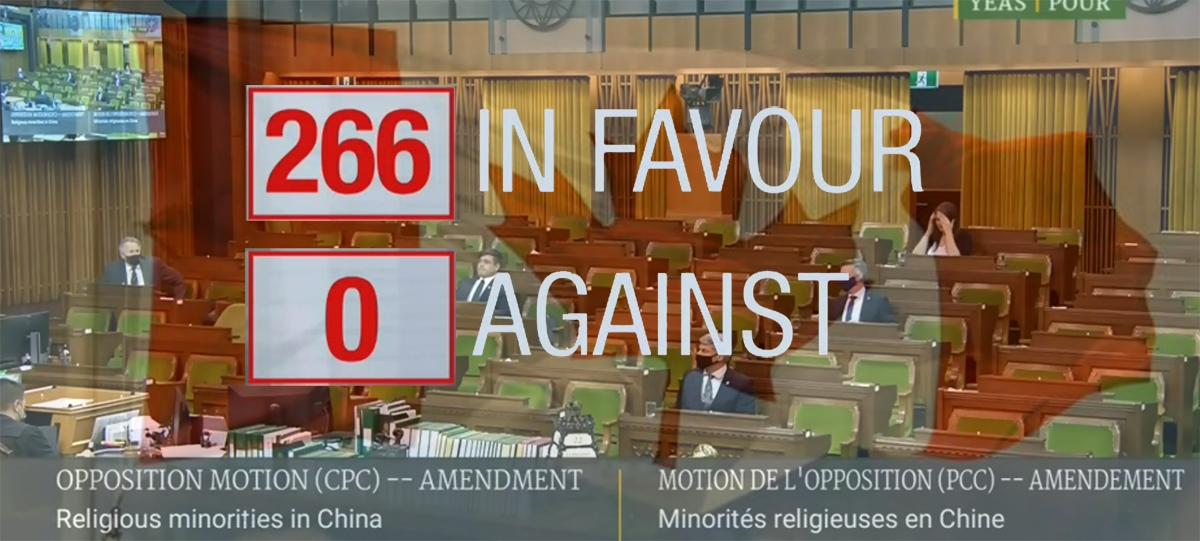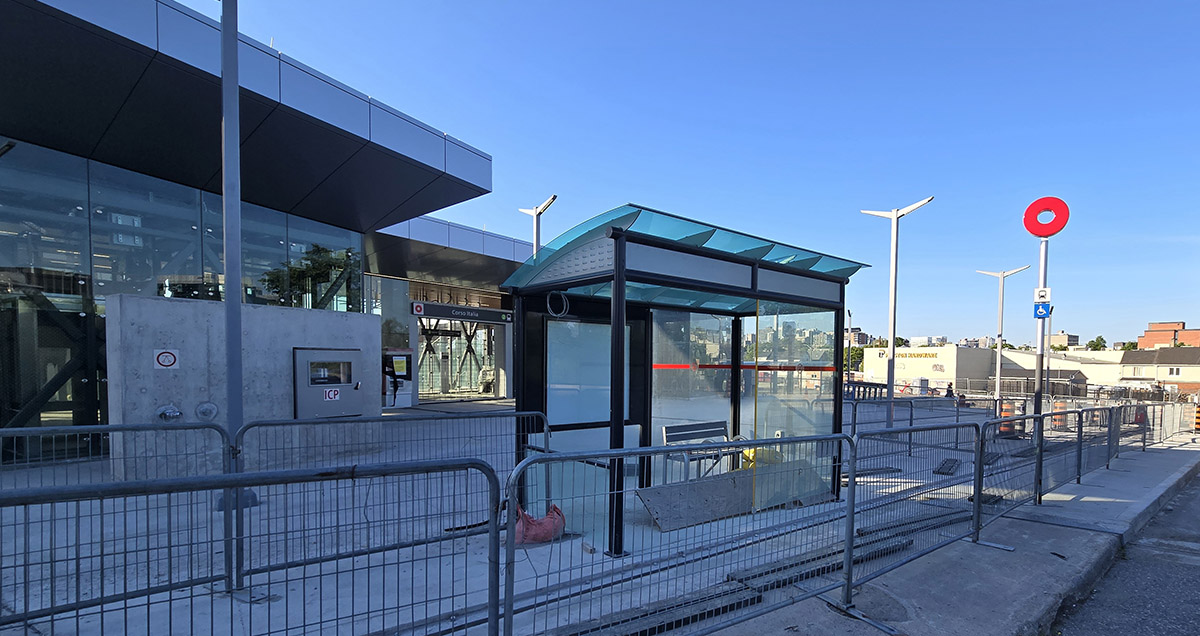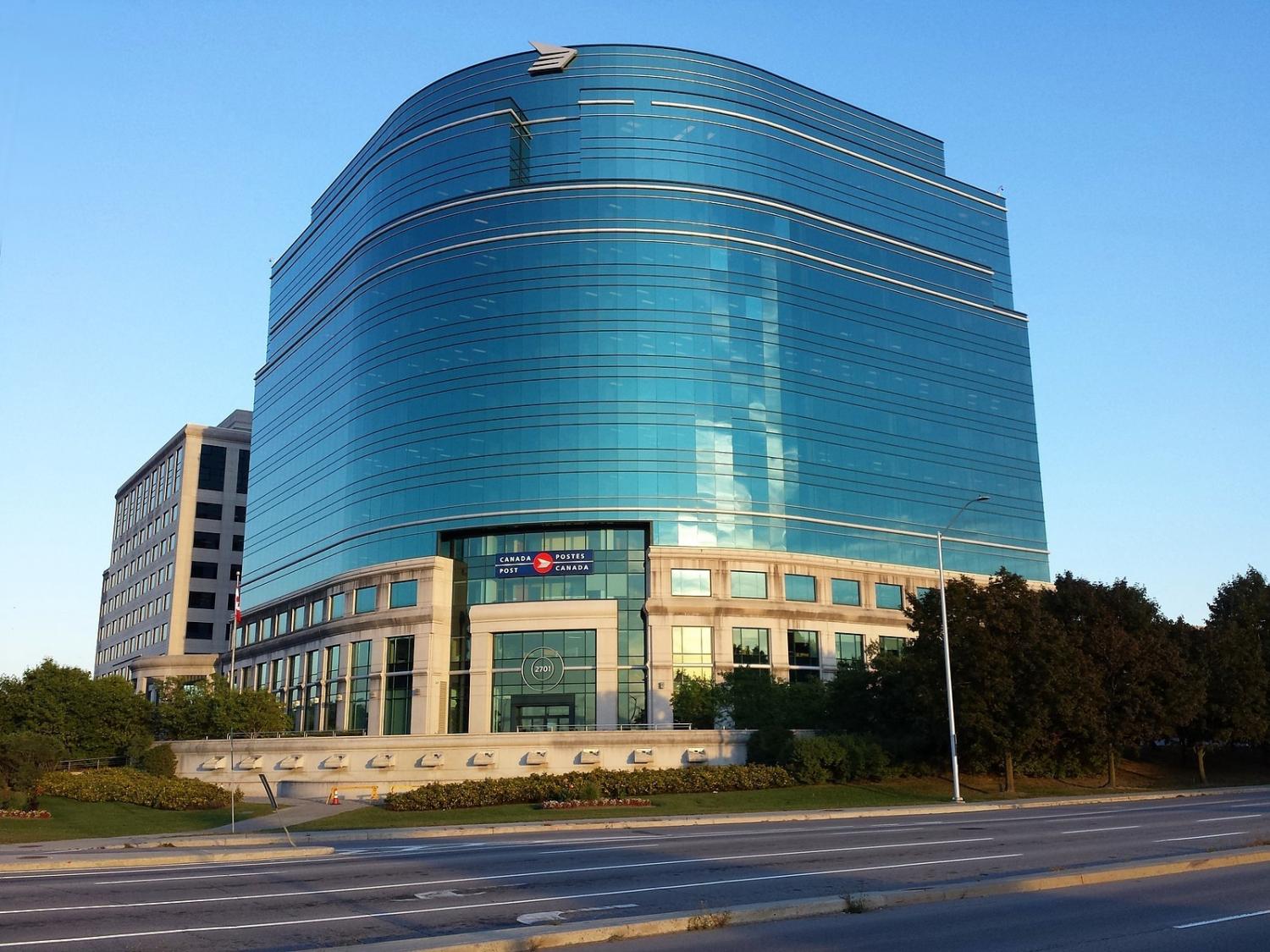
Hypocrisy, language, and words matter in our relationship with China
‘Those who live in glass houses shouldn't throw stones’
op-ed — The House of Commons vote on Monday Feburary 22, 2021 to approve a non-binding motion, brought forward by the opposition Conservatives, to recognize China’s actions in the north-western Xinjiang province as a genocide against Muslim Uighurs was misguided and wrong.
That Conservative leader Erin O’Toole, NDP leader Jagmeet Singh and other parliamentarians seem to believe that modern day China and the CPC should be put in the same category by the Parliament of Canada as the Nazi’s who committed atrocities during the Holocaust, the barbarities of the the Khmer Rouge in Cambodia, the Rwandan genocide in 1996-97, or with the Islamic state (ISIS) who perpetrated a genocide and mass killing spree against the Yazidis is deeply troubling and irresponsible. Genocide is a very loaded term and is associated with pure evil and the intent to wipe out an entire people.
For the Canadian Parliament to lay the stain of genocide so callously on the people of China, without the support of a UN investigation while being dismissive of the Chinese government’s vehement denial of the accusation is problematic. China is the world’s most populist country and has achieved more economic growth and social uplifting for its citizens and eradicated more poverty and brought more people into a living wage than any other country in human history.
Language matters. Words matter. Facts matter. The MPs who supported the motion accuse China of reports of human rights violations in Xinjiang, including the use of arbitrary detention, political re-education, forced labour, torture and forced sterilization. Prior to the vote the Prime Minister Trudeau said that “Canada will continue to work with international partners to defend vulnerable minorities and we once again repeat our call for transparency and a credible international investigation in response to allegations of genocide. “This investigation must be conducted by an international and independent body so that impartial experts can observe and report on the situation first-hand.” The United Nations Human Rights Chief Michelle Bachelet has decried the reported arbitrary detentions and ill-treatment of Muslim Uighurs in China’s Xinjiang and has called for a need for a thorough and independent assessment of the situation.
On February 22, 2021 Chinese Foreign Minister Wang Yi, addressed the United Nations Human Rights Council in Geneva and said there were 24,000 mosques in the western region, adding that “basic facts show that there has never been so-called genocide, forced labour or religious oppression in Xinjiang.” Wang said China rejects the “slanderous attacks” about conditions for Muslim Uighurs and other minorities living in its Xinjiang region, saying that they enjoyed freedom of religion and other fundamental rights. He added that “the door to Xinjiang is always open. People from many countries who have visited Xinjiang have learned the facts and the truth on the ground”. Wang said China has invited the High Commissioner for Human Rights Michelle Bachelet to visit Xinjiang.” Bachelet was first invited to go to Xinjian in June 2019, when China’s ambassador to Geneva, Chen Xu, said that Bachelet is welcome to visit Xinjiang.
Despite this, Canadian MPs went ahead anyways under the guise that by supporting such a motion they would somehow be exhibiting political courage or moral leadership. Nothing could be further from the truth. By ignoring both Trudeau’s cautionary statement on using the term genocide and the fact that Bachelet has yet to visit Xinjian, these MPs only further strained Canada-China relations during an exceedingly difficult period.Prime Minister Trudeau and his cabinet rightly abstained, knowing the use of term genocide should not be used so casually, especially given their own record on human rights.
The reality is the Canadian vote was a cynical ploy that had nothing to do with human rights and was driven by Canadian domestic politics and an Official Opposition Party led by Conservative Leader Erin O’Toole who saw an opportunity to embarrass the Trudeau government over the ongoing toxic dispute between Beijing and Ottawa regarding the improper detainment of Huawei executive Meng Wanzhou in December 2018. China responded to that arrest by detaining ‘the two Michaels’ (Canadians Michael Spavor and Michael Kovrig|) on espionage charges.
That these vainglorious opposition and Liberal MPs made this damning declaration against China, while hypocritically turning a blind eye for the past four years to the horrific crimes against humanity being perpetrated in Yemen by the government of Saudi Arabia with the full support of the United States military is wrong. Why have Canadian MPs not had a genocide vote on that matter? These are the same MPs who supported the Trudeau government contract to purchase $15 billion in armaments from the Saudi government. Similarly, the Canadian Parliament did not hold a vote to declare Syria a genocidal state after the Syrian President Bashar al-Assad and his corrupt regime killed over half a million of its own people and literally destroyed the infrastructure of its country to stay in power over the past decade.
The real problem is that Erin O’Toole and most Conservatives see China at best as an adversary, and at worst as an enemy of western democracies. These views reek of the old style European and American based superiority, conceit and arrogance that were the hallmark of 19th century colonial powers towards the people of China and Asia. O’Toole and other MPs only fear China because the Chinese have a fundamentally different social system and are realizing such exceptional economic growth and success that they believe it threatens democratic capitalism and western hegemony and values.
O’Toole, like many westerners, believes the best countries are those with democracies and capitalism. Democracies, particularly America, work to spread this ideology worldwide. And this is the crux of the problem with Sino-Western relations today.
Western ideology is based on a superiority complex that postulates that any system or rule of law not like ours, is inferior by default. This premise is inherently racist and is an irreconcilable approach in dealing with 21st century China, and global multilateralism. There is a very misguided assumption in the west that the Chinese people are repressed or have no freedom. The Chinese system is vastly different in ways and means from ours. Though China has not increased political freedom in the last 30 years, personal freedoms have increased greatly.
Contrast this with the United States, which in the past twenty years has constantly infringed on its citizens rights to safety: there are riots in the streets, general political chaos, extremism, and police violence against minority populations and Black, Indigenous, and people of colour (BIPOC). Americans are 25 times more likely to be victims of gun violence. As of June 2020, the United States had the highest number of prisoners worldwide, with more than 2.12 million people in prison at 655 inmates per 100,000 of population, a 500 per cent increase over the last 40 years. Changes in law and policy, not changes in crime rates, explain most of this increase. People of colour makeup 37 per cent of the U.S. population but 67 per cent of the prison population. Overall, Black Americans are more likely than White Americans to be arrested; once arrested, they are more likely to be convicted; and once convicted, they are more likely to face stiff sentences. Black men are six times as likely to be incarcerated as White men and Hispanic men are more than twice as likely to be incarcerated as non-Hispanic white men. The United States has the world’s largest private prison population. Of the 1.5 million people in state and federal prisons in 2016, 8.5 per cent, or 128,063, were incarcerated in private prisons. Cheap prison labour serves as a powerful labour market incentive against criminal justice reform. The built-in, low-cost workforce benefits the prison industry, which relies on prison labour to keep operating costs low and sell cheap goods to government agencies and private companies. The private prison system in the United States is the same as modern day slavery.
Canada can complain about the re-education or reform or detention centres in Xinjiang. These are essentially prisons and China is not denying their existence. What China is vehemently denying are Western accusations pertaining to their treatment of the Uighurs in those detention centres.
In the U.S. they publish reports annually about privately owned prisons using prisoners as modern-day slave labour, yet not a peep from Canada. Then again, in Canada 2.3 per cent of the population is Indigenous yet 29 per cent of Canada’s male prison population is Indigenous and 38 per cent of the female prison population is Indigenous. Multiple credible groups have declared this race-based incarceration, yet no motion from Canadian MPs on that score.
Unlike Canada and the West, China operates on a unique system that blends a single-party state with Chinese characteristics with capitalism and other elements from western governments. By its nature, it upends the expectations and superiority of Western democracy. It is inwardly focused and does not try to spread this ideology to other nations.
Erin O'Toole’s comment after the vote that Prime Minister Trudeau and his cabinet missed an opportunity to stand up for human rights — as former Prime Minister Brian Mulroney did with the campaign against racial apartheid in South Africa is way off base. South Africa is one of China’s closest friends and allies and the two nations share very deep ties. South Africa has never once suggested that China today is in any way like the old South African apartheid state or is involved in genocide.
Interestingly, both former Conservative Prime Minister Brian Mulroney and former Liberal Prime Minister Jean Chretien have called for Canada to repair relations with China. How insulting China with formal accusations of genocide is going to resolve the issue of the two Michaels who remain in prison in China or benefits in any way the 1.8 million Chinese diaspora living in Canada (including over 200,000 Chinese foreign students), or is helpful to the over 300,000 Canadians living in Hong Kong is not apparent. To add insult to injury, O’Toole’s genocide motion also called on the government of Canada to lobby the International Olympic Committee to move the 2022 Winter Olympic Games out of Beijing.
These events followed a year-long effort by the Canadian government to get nations to sign a new international declaration denouncing state-sponsored arbitrary detention of foreign nationals for political purposes. The initiative was viewed as a diplomatic maneuver implicitly aimed at drawing democratic allies into a network to condemn China. However, it appears to have failed as many countries as possible including South Africa, refused to join in on what was widely perceived to be a Canadian effort to discredit China. When asked about it, Foreign Affairs Minister Marc Garneau would not name specific countries, claiming the new declaration was “country-agnostic.” He said he wants to recruit more countries as signatories with the goal of ending the practice of arbitrary detention everywhere and to discourage other countries from taking it up.
Ironically, it seems lost on Garneau that the Chinese government has maintained since 2018 that Canada’s detention of Meng Wanzhou is without legal merit and is an arbitrary detention and have even gone as far as referring to it as a ‘kidnapping.’
Chinese Ambassador to Canada Cong Peiwu and the CPC denounced the vote as meddling in China's internal affairs. "A few people in Canada and some other western countries are talking about upholding values, but one important part of the values should be: respect facts and stop spreading disinformation and even lies," Cong said in a statement, adding that "We urge the Canadian side to take seriously China's solemn position . . . so as not to cause further damages to China-Canada relations."
China continues to maintain the mass detention camps or ‘re-education camps’ in Xinjiang are their way of dealing with domestic terrorism. The Chinese point to actions taken by other countries including Canada to deal with their own terrorism issues, whether it a bus bombing in London, gunfire and weapons attacks in Paris and Brussels, the bombing of a train station in Madrid, or lone wolf attacks in Cologne, Nice, Ottawa, and in several U.S. cities.
The Chinese observe that Western countries, including Canada, have responded to these events and the violence of the jihadi’s with their own domestic terrorism laws such as the U.S. Patriot Act, Bill C-51 in Canada, the counterterrorism, and border security bill in Britain and the “Strengthening Homeland Security and the Fight Against Terrorism” (SILT) legislation in France. These laws provide governments and their courts, police and security services with new powers directed at blunting terrorists before they act.
Ironically, while Western governments have increased their own surveillance and police capacity and abilities and spent close to $2 trillion themselves to combat terrorism in Europe and North America in the past 15 years, these same government (including Canada) have attacked and criticized the Chinese government for its response to counter domestic terrorism and violent jihadi extremists in China’s western Xinjiang province.
In 2019, the Chinese state media released two videos that disclosed for the first time the problems faced to combat terrorism in the Xinjiang western region of China between 1990 and 2016. During this period, thousands of terrorist’s attacks were launched in Xinjiang, killing large numbers of innocent people and hundreds of police officers. The videos begin by explaining the heritage and livelihoods and diversity of the more than 30 ethnic groups who make up the Xinjiang region. Then, in chilling detail they show footage that captures many of the violent jihadi attacks on the innocent population. Chinese officials say the aim of the domestic terrorists in all the attacks was to cause maximum casualties and panic to the local civilian population. The terrorists are seen slashing people with machetes, ramming people with fast moving cars in pedestrian areas, detonating bombs in trucks and cars in civilian areas to kill and maim a massive amount of innocent civilians. The brutality is shocking, heartbreaking and as riveting and upsetting as any of the news coverage that emerged of the Western attacks in Paris, London, Brussels, Madrid, Nice or Ottawa during the same period, which most people watched live on CNN.
The Chinese government passed a special law in 2016 called the Xinjiang Counter Terrorism Law. It defines religious extremism as the proposition and action of inciting hatred, inciting discrimination, and advocating violence by distorting religious teaching or other means. The intent of the law is to provide tools to combat the rise of religious extremism which was the cause and ideological basis of the terrorism and violence that was taking place in Xinjiang. It provides measures to define terrorist activities, implement security precautions, conduct investigations, and punish religious extremists.
The main problem with the non-binding motion, brought forward by the opposition Conservatives, to recognize China’s actions in the north-western Xinjiang province as a genocide against Muslim Uighurs is that it was all theatre and politics. It is in Canada’s national interest to put forward a cogent respectful strategy to reset our relationship with China, rather than the disingenuous hysterics we saw play out in the House of Commons this past week that are so corrosive. The Chinese have invited the United Nations High Commissioner for Human Rights Michelle Bachelet to visit Xinjiang. Until she does and reports back, our MPs and the Trudeau government should spend their time reflecting on Canada's double standard and hypocrisy on human rights issues.








